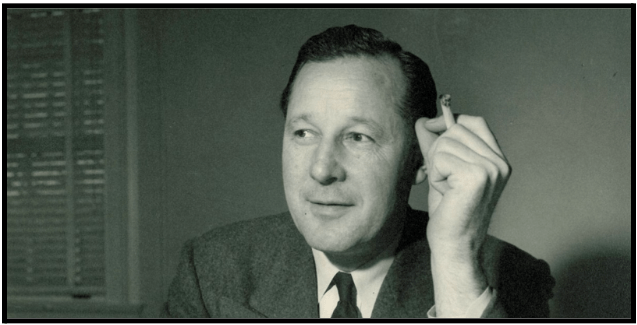One Idea. One Challenge. Once a Week.
“At no point in your rambling, incoherent response were you even close
to anything that could be considered a rational thought.”
~ The Principal, Billy Madison
Niels Bohr was scared.
The world was about to enter an unprecedented era. After decades of dealing with global war, depression, and plague, something even worse lurked on the horizon: nuclear holocaust.
Bohr was convinced the United States and Britain needed to have an honest dialogue with the Soviets. Otherwise, a nuclear arms race, pitting the U.S. and Britain against the Soviets, could be inevitable and catastrophic.
In 1944, with war raging, Bohr secured a meeting with Winston Churchill. The Prime Minister knew Bohr was smart: a philosopher and Nobel prize-winning quantum physicist renowned for his intellect.
But Bohr was also a terrible speaker.
Churchill did not react well to Bohr’s rambling and vague abstractions. He wrote that “Bohr ought to be confined or at any rate made to see that he is very near the edge of mortal crimes.”
Perhaps the American leader would respond better. Bohr spoke directly with FDR. But an advisor doubted the president understood anything Bohr said.
Karl Popper knew Bohr well. He lamented that “one couldn’t talk with him. He was talking all the time, allowing practically only one or two words to you and then at once cutting in.”
How could Bohr, so smart, be so bad at communicating?
The truth is, many brilliant people never learn to speak well.
I’ve shared a story about an expert preparing to testify before Congress. His remarks were as clear and persuasive as possible, he assured us. He was shocked to learn no one in the room could understand him.
If you don’t practice your public speaking, then, like Niels Bohr and countless others, you probably ramble in vague and abstract ways. You likely forget to make time to listen and see the world from your audience’s perspective.
And you may fail at a fundamental task in communication: making your point.
Thankfully, Bo Seo is here to help.
Bo Seo [pronounced “soh”] is author of the new book Good Arguments. He’s a two-time world champion debater. He has coached some of the most successful debate teams on the planet, from Australia’s national team to the Harvard College Debating Union.
To persuade others, Bo says we must learn how to explain our ideas. He came up with a simple way to do this. He calls it the 4 Ws.
I’ll call it The Bo Method.
It’s a quick exercise that helps clarify your abstract thoughts. For every idea you want to share with others, first ask yourself these four questions:
- What is the point?
- Why is it true?
- When has it happened before?
- Who cares?
Let’s say I want to convince you to use the Bo Method to craft your argument. I could sketch out my case like this:
- What: Run your big ideas through The Bo Method.
- Why: It condenses timeless principles of rhetoric and argumentation into a simple process that works.
- When: Bo Seo has applied this method to win two world championships in debate. And he’s used it to coach many other champions as well.
- Who cares: You will exponentially increase your reach and impact by learning to effectively communicate in a clear and compelling way.
Here is another example. This year I decided to get good at sleeping. I’ve read through books like Why We Sleep, Lifespan, and The Circadian Code. There’s so much information I get lost in the details.
Using the Bo Method I can tighten my case for good sleep to something like this:
- What: Sleep is the single most important way to improve our health. It trumps even diet and exercise for physical and mental well being.
- Why: Sleep affects every cell in our body. It improves our ability to learn, remember, recover from injury, and be productive and happy. One night of bad sleep causes noticeable damage to our mental and physical health, far more than going without food or exercise. Chronically bad sleep causes heart disease, obesity, anxiety, depression, and premature death.
- When: A beloved family in my community was just involved in a head-on collision driving to our local farmer’s market on a Saturday morning. The mom was killed. The survivors need multiple surgeries. The driver who hit them fell asleep at the wheel. It’s a senseless tragedy caused by drowsy driving, which is more dangerous than drunk driving.
- Who cares: The less you sleep, the shorter and sicker your life will be.
Notice how the “what” states my point in a direct way. The “why” and the “who” present my idea as true and important. And the “when” adds credibility with a vivid example.
These are all classic components of persuasion.
While few people practice competitive debate, everyone argues for their ideas. Why not excel at it? Imagine if Niels Bohr and other wonks took a little time to learn this. How different would our world be?
In today’s climate, clear and compelling arguments are more important than ever. Yet they’ve always been vital. In 1883, the philosopher Henry George wrote:
Social reform is not to be secured by noise and shouting; by complaints and denunciation; by the formation of parties, or the making of revolutions; but by the awakening of thought and the progress of ideas.
Let’s make time to effectively argue for good ideas.
***
![]() IDEA
IDEA
Use The Bo Method.
What’s an idea you feel passionate about? And wish others would see from your perspective? Take a moment and apply The Bo Method:
- What is the point?
- Why is it true?
- When has it happened before?
- Who cares?
***
Try this on your own ideas using our Bo Method worksheet.
For more about ideas:
- #25: How to have really good ideas
- #52: How to communicate numbers
- #24: Create space for ideas to emerge
If you find this useful, please subscribe to our free weekly newsletter.




